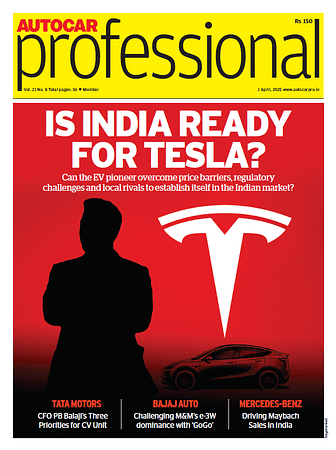Volkswagen India Plans Diverse Powertrain Portfolio to Stay Relevant in Market
Volkswagen has electric models ready globally, but the company is closely watching India’s EV policy framework and tariff structure before making firm moves.
As India navigates its transition toward electric mobility, Volkswagen India is doubling down on a diversified approach to powertrains, signaling its intent to remain a relevant player across internal combustion engines (ICE), hybrids, and electric vehicles (EVs).
Ashish Gupta, Brand Director at Volkswagen India, emphasized that a multi-fuel strategy is vital in the Indian context, where EV adoption remains slower than anticipated. “If you look at it, even by the best estimates, the Indian market will not be more than 20% BEVs by 2030. Which means that 80% of the market will be ICE, hybrids, and other alternatives. So, if you want to be a relevant player, you have to make sure that you have offerings available across all powertrains—whether ICE, BEV, or a combination,” Gupta told Autocar Professional.
Volkswagen, which has a diverse global portfolio spanning all types of drivetrains, is in the process of evaluating which products best suit Indian consumer preferences and regulatory conditions, according to Gupta.
While the shift to electric is widely viewed as inevitable, Gupta noted that market reality is lagging behind expectations. Still, Volkswagen is preparing to be part of the EV transformation in India—if the policy landscape becomes more favorable.
“Electrification has not picked up at the pace that everybody was anticipating. But it’s very clear that it’s a transformation that has to happen sooner or later,” Gupta said. Volkswagen has electric models ready globally, but the company is closely watching India’s EV policy framework and tariff structure before making firm moves. “If the conditions are favorable, we can bring them in,” he added.
On the electric mobility front, Volkswagen currently offers a strong global EV lineup, including the ID.3, ID.4, ID.5, ID.7, and the ID. Buzz. Last month, the company also unveiled the concept of its upcoming affordable EV, the ID. Every1. For the Indian market, Volkswagen has opted to use its own internal EV architecture while actively exploring strategic alliances and partnerships to strengthen its position. As part of its localization strategy, the automaker plans to localize the CMP platform for EVs and the MQB A037 architecture for petrol and hybrid models.
On hybrid vehicles, Gupta said no technology is off the table for Volkswagen globally. “Every kind of technology is on every manufacturer’s radar. Nobody can ignore any technology.” While Volkswagen has not committed to hybrid launches in India yet, Gupta’s comments suggest openness to exploring options as the market matures.
On tariffs and potential trade agreements, Gupta said, “Globally speaking, tariffs are never good for business. We have always maintained that for business to flourish, tariffs have to be brought down. Any move in that direction—whether with the EU or other countries—would be a welcome move for us.”
Premiumisation Strategy
Volkswagen is eyeing the premium passenger vehicle segment in India, which continues to grow steadily. Despite a smaller base, premium car sales are rising faster than the broader market, Gupta said.
To make the most of the premium car sales trend, Volkswagen launched the Tiguan R-Line in India on Monday at an introductory price of ₹48.99 lakh (ex-showroom). Deliveries of the vehicle are set to begin on April 23. Volkswagen will offer its flagship SUV in India as a full CBU (completely built unit) import.
Gupta called the Tiguan R-Line launch a strategic brand move, aimed at strengthening the company’s presence in the luxury SUV space, which sees monthly sales of around 3,500 to 4,000 units at an industry level.
“This car (Tiguan R-Line) is not about volumes. It’s about growing the brand in India. The segment is dominated by a few players, primarily because customers don’t have much choice. There’s a lot of space for a car like the Tiguan R-Line,” Gupta said.
With a competitive offering and a focus on value, Gupta expressed confidence that the R-Line will find favor among premium buyers.
RELATED ARTICLES
Trade Tensions, Structural Shifts in Auto Sector Cast Shadow Over 2025: Mahle CEO
CEO Arnd Franz outlines strategic priorities as Mahle braces for regulatory headwinds and market uncertainty in 2025.
Castrol India returns as Title Sponsor of The Valley Run – Summer 2025
Castrol India returns as title sponsor for The Valley Run – Summer 2025, showcasing its performance products and engagin...
Continental to Announce New Automotive Company Name at Auto Shanghai 2025
The global technology company will showcase autonomous driving systems and light projection solutions while revealing it...






 By Darshan Nakhwa
By Darshan Nakhwa
 14 Apr 2025
14 Apr 2025
 1255 Views
1255 Views







 Sarthak Mahajan
Sarthak Mahajan

 Angitha Suresh
Angitha Suresh

